Profile: Luke Somers
- Published
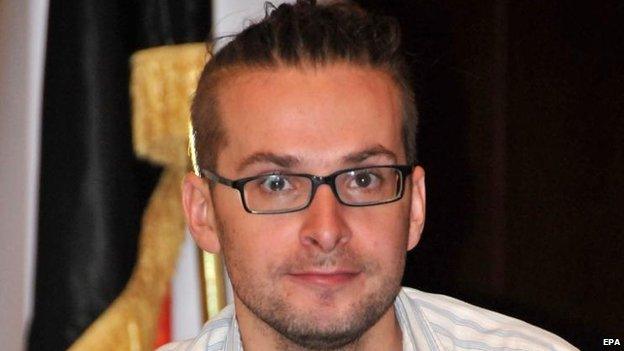
Luke Somers was abducted in Yemen in September 2013
When Luke Somers moved to Sanaa in February 2011, he went as a teacher with no expectation his career would turn to journalism.
However, as the Arab Spring blew through the region, turmoil rocked the Yemeni capital and Luke began to document the events around him.
The British-born US citizen had only been in Sanaa for two weeks when he captured this image of a wounded young protester being taken to hospital by his friends.
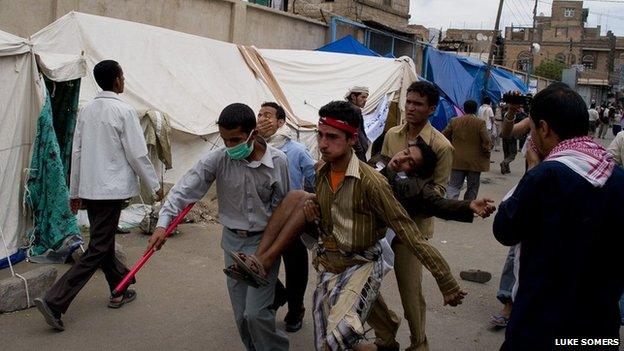
Then an amateur photographer, Luke told the BBC how it unfolded: "I was standing by at the anti-government protesters' camp while the afternoon prayers were performed. Gunfire crackled nearby, quieting the surrounding air; and wounded young men were soon rushed past by men with agitated faces."
He soon began working for local publications the Yemen Times and the National Yemen, and his material appeared on international news outlets.
His photos documented the country's political developments and anti-government protests, but also captured the impact of conflict and hardship on the lives of many Yemenis.

Luke Somers' emails to the BBC
22 August 2013
With widespread attention very recently focusing on embassy closures and security threats, I strongly feel that such a glimpse as this photo essay provides can serve to balance such attention with the true-to-life interests of Yemen's citizens.
24 August 2013
Yemen isn't the most difficult place to live in. Always something to make you smile, you just sometimes have to step outside and find it. I actually feel pretty fortunate, as I'm the only foreigner I know of working directly and regularly in connection with the National Dialogue Conference. But soon enough, I need to depart and spend some time with my mom!
4 September 2013
I'm sure I will return to the Middle East - and with regards to Yemen, it's pretty much a must. It's an emptying thought, imaging rooting yourself so firmly in a place, only to never return. So return I should, return I must.

He also continued contributing to the BBC's coverage of the fast-moving events, providing vivid eyewitness accounts and sending pictures.
He produced a series of dramatic photo galleries from Yemen, saying "it means so much for people here to know that their story is being heard/seen".
He stated his desire to capture through his images the "themes of daily life, political crises and whatever else has made the two-year period [2011-2013] both incredible, difficult and unprecedented - yet somehow hopeful - for Yemeni citizens".
A lot of blood was shed during the conflict, and Mr Somers described how the smell of death remained on his clothes long after leaving the makeshift hospitals where he took images like this.
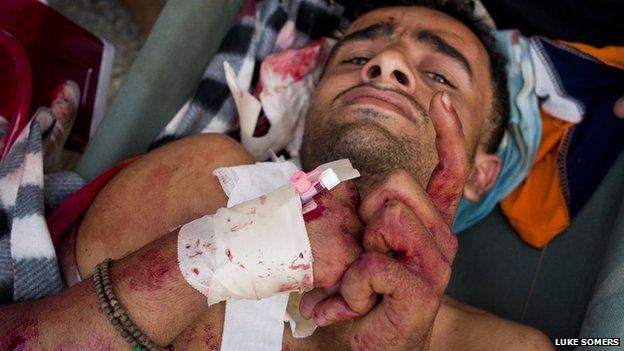
In August 2013 - a month before he was kidnapped from a street in Sanaa - he told the BBC: "I'm still in Yemen, though I plan to depart fairly soon."
His last photo gallery for the BBC - reporting on the National Dialogue Conference - appeared in September 2013 - just days before his abduction.
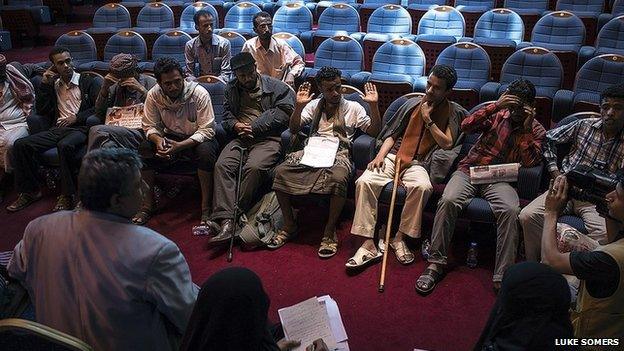
Mr Somers, 33, was born in the UK, but moved to the US with his mother when he was seven.
He visited the UK regularly to visit his father, who was based in Deal, Kent.
"Luke's taste for travel grew early on in life," Mr Somers' stepmother, Penny Bearman, said in a statement.
"As a young man he worked salmon fishing in the Arctic, lived for a time in Jamaica, witnessed riots in Cairo and moved to Yemen in 2011," she said.
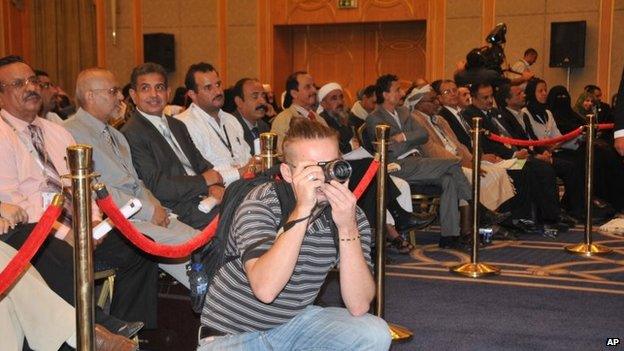
Luke Somers covered the National Dialogue Conference in Sanaa
She described him as "a talented photographer with a sensitivity for people", who had helped tell "the stories of communities in war-torn areas".
"I think Luke would have wanted issues of extremism and terrorism to be addressed by stepping up the dialogue instead of resorting to conflict between nations," she added.
One of Mr Somers' friends, who is based in Yemen, told the BBC he was "one of the kindest and most dedicated people to Yemen I have ever met."
She added: "He was very soft spoken, never got angry and he really cared about the Yemeni people, the common man in Yemen and their struggle."